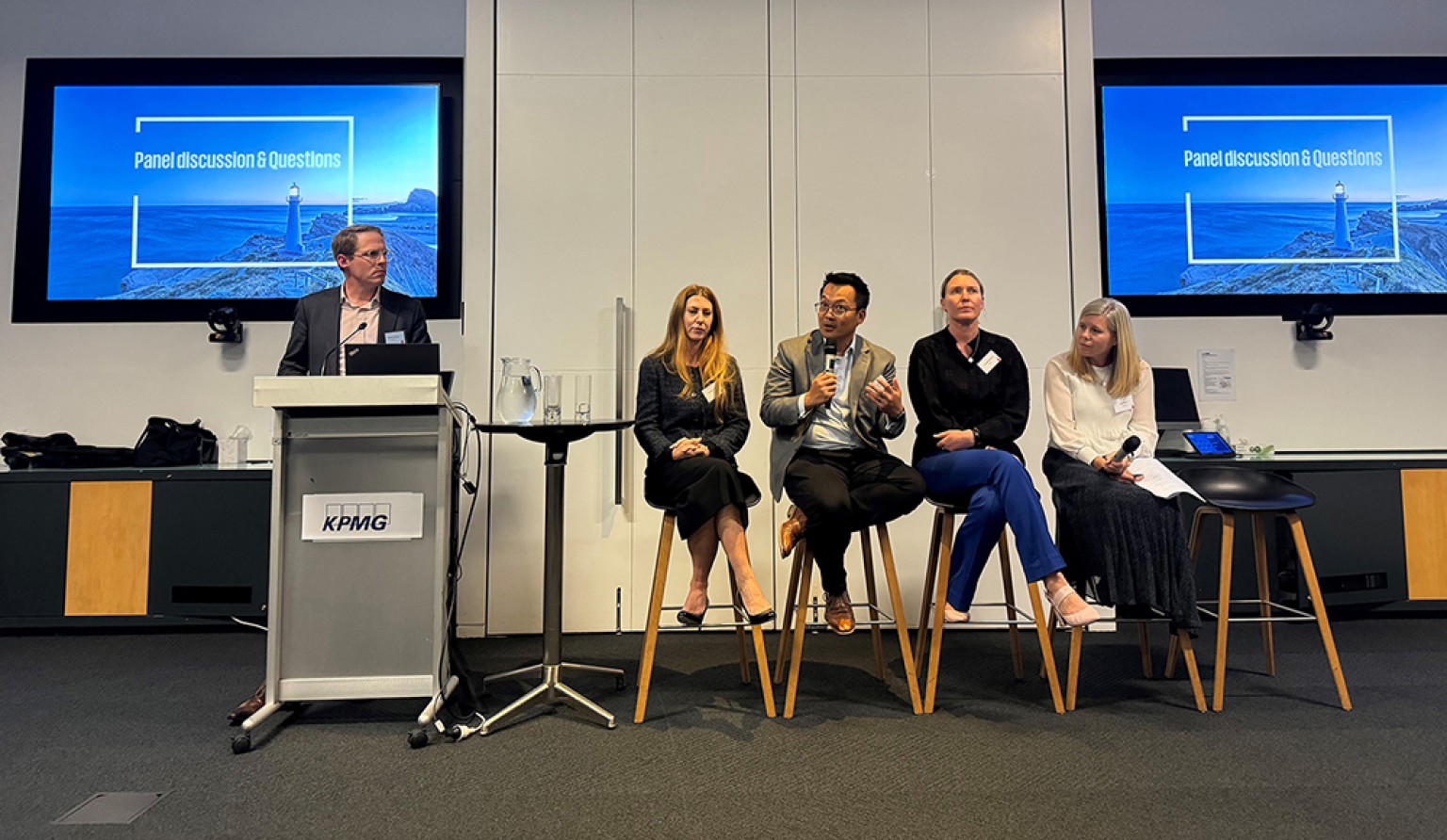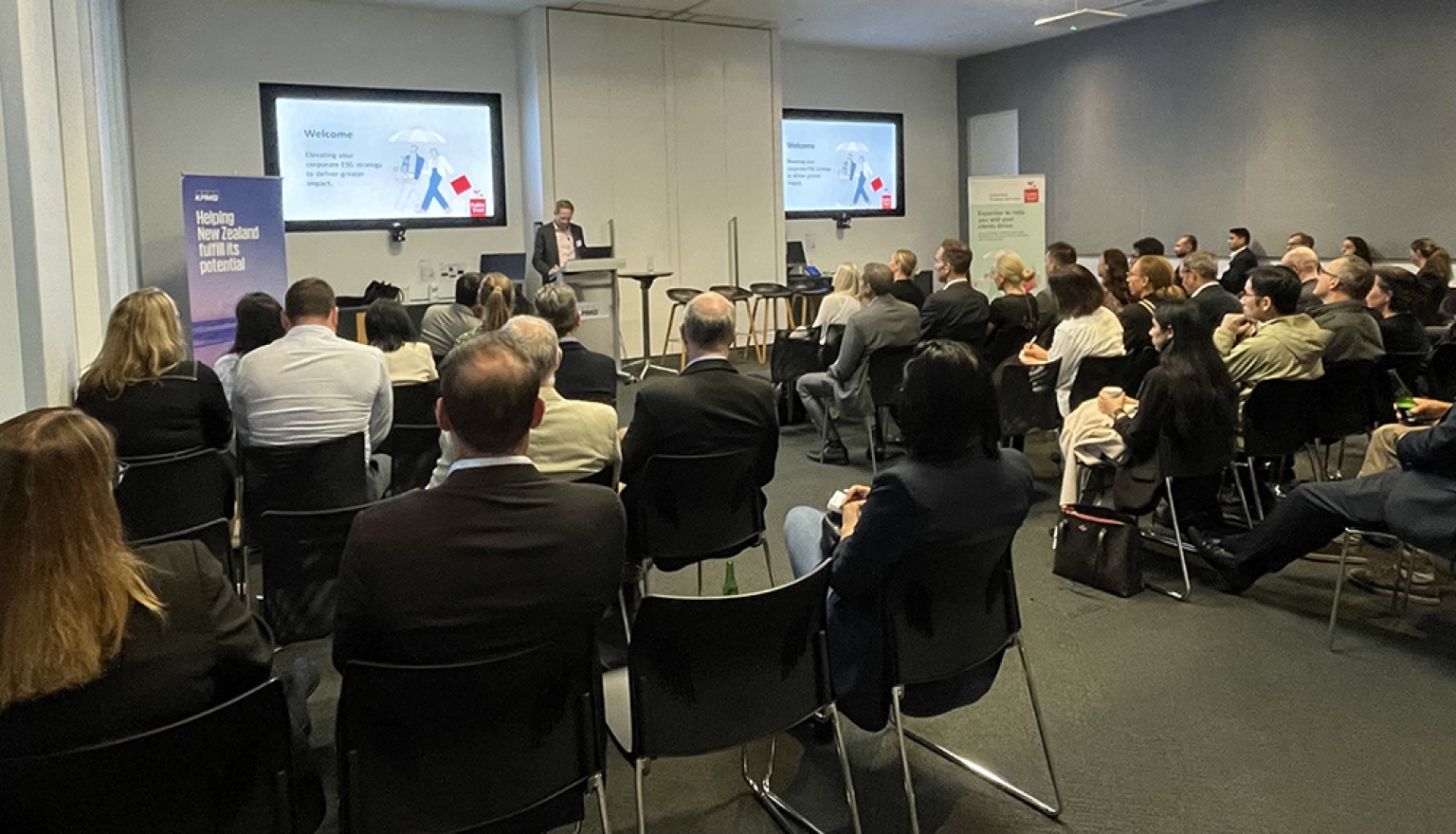Finding your ESG superpower: powerful ideas to elevate your ESG strategy
Contact us
A panel of ESG experts helped us make sense of the “alphabet soup” of New Zealand’s reporting and disclosure landscape at last week’s Public Trust and KPMG co-hosted event. From finding your superpowers to supercharging your ESG strategy, here were some of the big talking points.

Identify your ESG superpowers
You can’t do everything so focus on what’s most important and play to your strengths, our panel advised.
“Don’t let perfect get in the way of progress. It’s about just getting started on your journey, wherever that starting point is, and focus on what values are important to you and genuinely align to your organisation because that will be your strength when standing behind set targets.” – Kirsten Lapham, Director Sustainable Value and Financial Services, KPMG
“As we went through the process of developing our first ESG strategy, we identified what I call our ESG superpowers, which helped us to identify our priorities. The areas where we have the biggest outsized positive impact. And for us, given we are in a low emitting sector, a key potential superpower is our impact on the local communities we support through our many community partnerships. Another superpower is our ability to influence the wider market to act using our voice as a large and respected New Zealand investor.” – Katie Beith, Head of ESG, Forsyth Barr
“ESG is really organisationally specific. It requires you to think very hard about what you do. Do you actually understand how you're creating value? It has to be genuine and authentic.” – Alec Tang, Partner Sustainable Value, KPMG
Good data is imperative
New Zealand’s mandatory climate-reporting standards came into force earlier this year. Reporting is bringing greater transparency to financial markets for both climate related-risks and opportunities, but more needs to be done.
“Climate related disclosures has been a real focus for our clients and for Public Trust. We've seen a lot of really good progress. This is the first year and although the rubber’s hitting the road, there's a fair way to go. There are some real challenges with obtaining and managing reliable data. We’ve got to make real honest disclosure, we've got to get the data right.” – David Callanan, General Manager Corporate Trustee Services, Public Trust

“People are very conscious of greenwashing. People want to do a good job, they want to be transparent, they want to meet their compliance obligations. That means we're going to see a more softly, softly approach for some people…. Identifying and sizing articulating risks is difficult. And then figuring out how to quantify those when you're working with future projections and forward-looking statements and then figure out how you can talk about them in a way that actually is helpful for the user, rather than overly caveated, is going to be a really interesting problem for us all to work through.” – Lucie Drummond, Executive GM Sustainability, Mercury
Find reporting role-models
Learn from others who have implemented reporting and climate analysis.
“By far the two biggest things that helped me in the six years I’ve been climate reporting is just getting started. There’s absolutely nothing like going and talking to someone who's done it and finding out, how do you practically do this? Theory on a page, guidelines and principles – you can have the best written document in the world, but there's absolutely nothing like just going and asking someone how they actually did it.” – Lucie Drummond
Protect competitive advantage with ESG reporting
More than 80 percent of New Zealand's exports by value were sent to countries with mandatory climate-related disclosures, according to research released by the Aotearoa Circle last month.
“If you're not engaging, you're at real risk of being left behind your peers and losing that real competitive advantage. Even if you're not in the scope of climate reporting standards in New Zealand, there is a strong case for disclosing as good practice on a voluntary basis, to understand the risks and opportunities inherent in your business. Reporting frameworks will have repercussions for New Zealand businesses regardless of size as it is likely firms you do business with or export to, are subject to the ecosystem of global mandatory or voluntary standards.” – Kirsten Lapham
Unleash the power of collaboration
The large-scale nature of ESG issues, like climate change, creates a strong incentive for strategic partnering.
“What are you as an organisation dependent on to in order to create continuous value? Look outside at who your partners and collaborators will be and talk to them. I know it’s hard, but from a sustainability and a climate perspective, we do need to collaborate.” – Alec Tang
“As a supervisor, we have a part to play in supporting New Zealand’s sustainability shift. That work will see us focus on areas where we think we can tangibly align our purpose and strategy to where we can realise tangible positive impacts, because an ESG strategy is more than just writing a document.” – David Callanan
Public Trust’s ESG strategy event was presented in association with KPMG in Auckland on 7 May. Many thanks to our panel of sustainability superheroes for sharing their ideas and insights and thanks to all those who attended.
All information, content, and materials referred to in this article are for general informational purposes only. Public Trust may add to, delete from, or otherwise amend the article, without notice. Information in this article is not intended to be a substitute for professional advice. You should not act in reliance on the content of this article without first obtaining professional advice relevant to your particular circumstances. While Public Trust has taken reasonable care to ensure that the content of this article is up to date and error-free, it does not give any guarantee or other assurance as to the accuracy, completeness, timeliness or fitness for any particular purpose of the information; nor accept liability for any loss or damage, direct or indirect, which may arise from reliance on it.